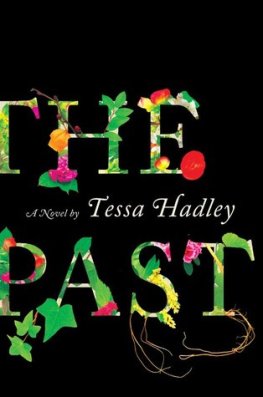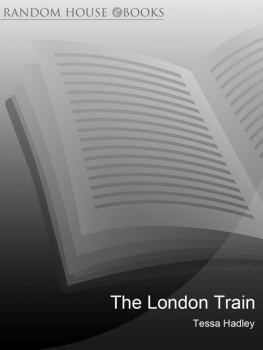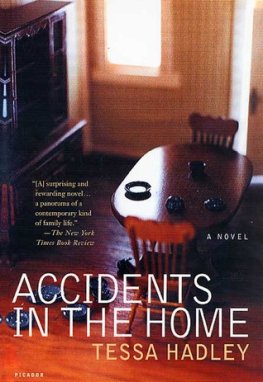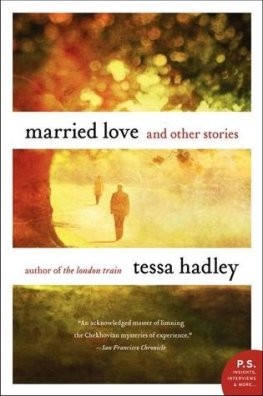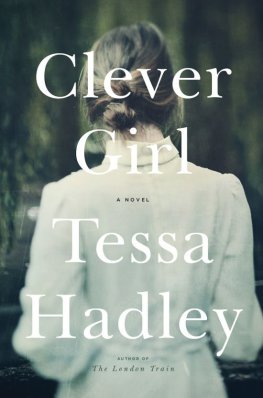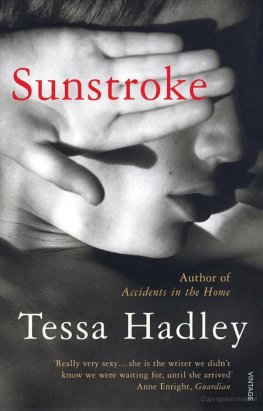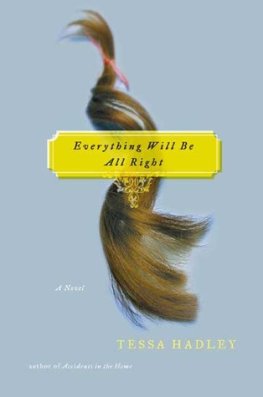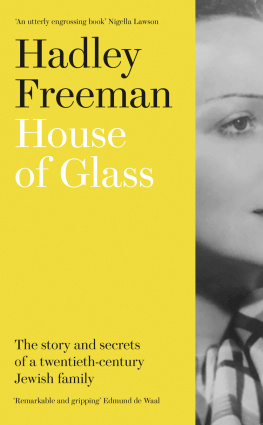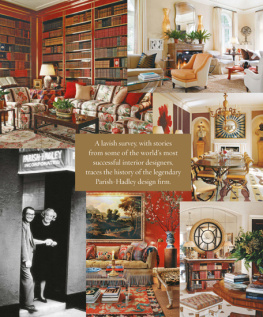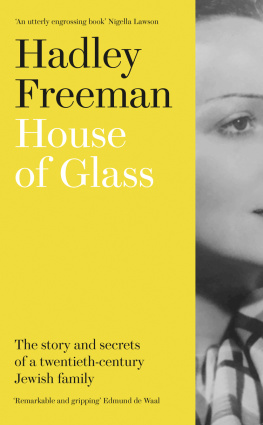Over five novels and two collections of stories Tessa Hadley has earned a reputation as a fiction writer of remarkable gifts, and been compared with Elizabeth Bowen and Alice Munro. In her new novel three sisters and a brother meet up in their grandparents old house for three long, hot summer weeks. The house is full of memories of their childhood and their past their mother took them there when she left their father but now they may have to sell it. And under the idyllic surface, there are tensions.
Roland has come with his new wife and his sisters dont like her. Kasim, the twenty-year-old son of Alices ex-boyfriend, makes plans to seduce Molly, Rolands teenage daughter. Frans children uncover an ugly secret in a ruined cottage in the woods. Passion erupts where its least expected, blasting the quiet self-possession of Harriet, the oldest sister. A way of life bourgeois, literate, ritualised winds down to its inevitable end.
With uncanny precision and extraordinary sympathy, Tessa Hadley charts the squalls of lust and envy disrupting this ill-assorted house party, as well as the consolations of memory and affection, the beauty of the natural world, the shifting of history under the social surface. From the first page the reader is absorbed and enthralled, watching a superb craftsman at work.
Tessa Hadley is the author five highly praised novels, Accidents in the Home, which was shortlisted for the Guardian First Book Award, Everything Will Be All Right, The Master Bedroom, The London Train and Clever Girl, and two collections of stories, Sunstroke and Married Love. She lives in London and is Professor of Creative Writing at Bath Spa University. Her stories appear regularly in the New Yorker and other magazines.
ALICE WAS THE first to arrive, but she discovered as she stood at the front door that she had forgotten her key. The noise of their taxi receding, like an insect burrowing between the hills, was the only sound at first in the still afternoon, until their ears got used to other sounds: the jostling of water in the stream that ran at the bottom of the garden, a tickle of tiny movements in the hedgerows and grasses. At least it was an afternoon of balmy warmth, its sunlight diffused because the air was dense with seed floss, transparent-winged midges, pollen; light flickered on the grass, and under the silver birch leaf-shadows shifted, blotting their penny-shapes upon one another. Searching through her bag Alice put on a show of amusement and scatty self-deprecation. She was famously hopeless with keys. She had come with a young man who was her ex-boyfriends son and on the train she had been preoccupied with the question of what stage of life she was at, whether people seeing them would think Kasim was her lover, or her child though he wasnt either. Now he walked away from her around the house without saying anything, and she thought that this mishap with the keys had shrivelled her in his opinion, he was bored already. They were in the country, in the middle of nowhere, with no way back; the house was set behind a cluster of houses on a no through road where there was no caf or pub or even shop where they could pass the time.
Behind her smiles she raged at Kasim for a moment. She wished now that she hadnt brought him. It had been a careless suggestion in a moment of feeling bountiful, having this place to offer; she hadnt really expected him to take her up on it and had been flattered when he did. But if she had been alone the keys wouldnt have mattered. It would have been a kind of bliss, even, to be shut out from the responsibility of opening up the house and making it ready for the others. She could have dropped onto the grass in the sunshine. She could have let go her eternal vigilance and fallen deep down here, in this place, Kington, of all places, into sleep, the real thing, the sleep that she was always seeking for and could never quite get. Alice was forty-six, dark, soft, concentrated yet indefinite she could look like a different person in different photographs. Her complex personality was diffuse, always flying away in different directions, like her fine hair, which a man had once described as prune-coloured; it was soft and brown like the inside of prunes, and she wore it curling loose on her shoulders.
The house was a white cube two storeys high, wrapped round on all four sides by garden, with French windows and a veranda at the back and a lawn sloping to a stream; the walls inside were mottled with brown damp, there was no central heating and the roof leaked. On the mossy roof slates, thick as pavings, you could see the chisel marks where the quarrymen had dressed them two hundred years ago. Alice and Kasim stood peering through the French windows: the interior seemed to be a vision of another world, its stillness pregnant with meaning, like a room seen in a mirror. The rooms were still furnished with her grandparents furniture; wallpaper glimmered silvery behind the spindly chairs, upright black-lacquered piano and bureau. Paintings were pits of darkness suspended from the picture rail. Alice had told her therapist that she dreamed about this house all the time. Every other house shed lived in seemed, beside this one, only a stage set for a performance.
Kasim didnt care about not getting inside; vaguely he was embarrassed because Alice had made a fool of herself. He wasnt sure how long he would stay anyway, and had only come to get away from his mother, who was anxious because he wasnt studying at the end of his first year at university he was bored. He imagined he could smell the rooms musty old age through the glass; the carpet was bleached and threadbare where the sun patched it. When he found a cheerfully shabby grey Renault parked on the cobbles beside the outhouses he called to Alice. Alice didnt drive and couldnt tell one car from another, but looking inside she knew it must belong to Harriet, her older sister. There was a box with maps in it on the back seat, and next to it on a folded newspaper a pair of shoes neatly side by side, with one striped sock tucked into the top of each. I know exactly what shes done, she said. Arrived here and left the car and gone straight off for a walk before the rest of us got here. Shes that sort of person. She loves nature and communes with it, in a principled way. She thinks Im frivolous.
The little display of ordered privacy made Harriet seem vulnerable to Alice; it touched and irritated her.
Perhaps your sister forgot her key too.
Harriets never forgotten anything in her life.
Because they couldnt get inside the house, Alice felt obliged to go on showing things to Kasim. She took him into the churchyard through a keyhole gap in a stone wall in the back garden. Her grandfather had been the minister here. The house and the church stood together on the rim of a bowl of air scooped deep between the surrounding hills, and buzzards floated on thermals in the air below them. The ancient stubby tower of the church, blind without windows, seemed sunk in the red earth; the nave was disproportionately all window by contrast, and the clear old quavering glass made its stone walls appear weightless you saw straight through to the green of trees on the far side. In the churchyard the earth was upheaved as turbulently as a sea by all the burials in it, and overgrown at one end with tall hogweed and rusty dock. Her grandparents grave, red granite, still looked shiny-new after a quarter of a century. Her grandfather had been very high church, Alice said: incense and the Authorised Version and real hell, or at least some complicated clever kind of hell.
He was a very educated man, and a poet. A famous poet.

